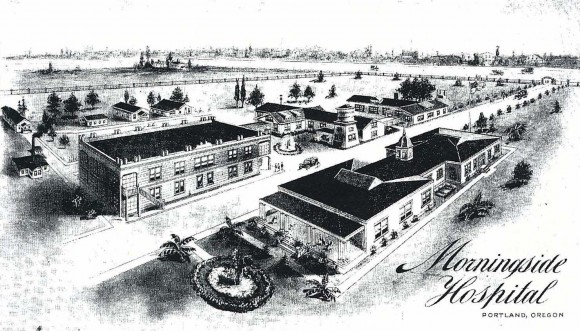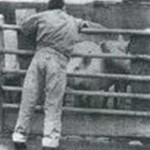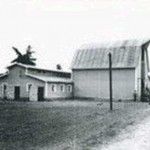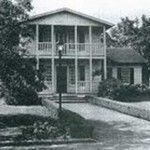The Morningside Hospital patient list found in the 1955 Department of the Interior (DotI) Report has been posted and incorporated into the Wall of Names.
You can view these lists here: 1955 Department of the Interior Report
The Wall of Names is sorted alphabetically by last name, and then by first name, rather than by source. The intended reason for this was to organize the names in a way that makes it easier for someone researching their family history or looking for a specific name to find the name they’re looking for. The other effect of sorting the names like this is that names that appears on more than one list group together. In adding the names from the Department of the Interior Report from March 1955, I stumbled upon a few patients who’s names appear in Judge Wickersham’s list from Morningside in 1916 and in the 1955 DotI Report. Read More »
The University of Alaska Oral History Program is doing interviews with people involved in the closure of Morningside Hospital, the court battles that lead to the establishment of the Alaska Mental Health Trust Authority, and the development of mental health, substance abuse, developmental disability and Alzheimer’s Disease services. The interviews, plus a lot more, can be found on their website. The following is from the UAF Jukebox site.
“The Mental Health Trust History Project Jukebox offers insight into the long struggle to provide quality mental health services in Alaska from the perspective of people who participated. There is discussion about how the mentally ill were treated prior to Statehood when they were sent to Morningside Hospital in Portland, Oregon; how in 1956 Alaska Read More »
Over the years, there were numerous occasions when concerns were raised about the quality of care provided by Morningside Hospital. The earliest we’ve found was in 1915. The Sunday, March 28, 1915 issue of the Atlanta Constitution included the following story:
Syndicate Enriched from Insane Asylum
Juneau, Alaska. March 27 – A report criticising the Morningside sanitarium at Portland Ore., where Alaska insane are cared for under contract with the government, was returned yesterday by the judicial committee of the territorial legislature. The report demanded “that conditions there, by which the syndicate is enriched $30,000 annually, be improved.” Read More »

A picture showing the Morningside Hospital circa 1925.
Morningside Hospital was located on the current site of Mall 205, a community shopping center off Interstate 205 in East Portland.
[mappress mapid=”1″]
Prior to the Alaska Mental Health Enabling Act of 1956, a person accused of being mentally ill was to be brought before a jury of six people, who would rule him sane or insane. The patient was often sent to prison until his transfer to Portland. Medical or psychiatric exams were not required. This commitment process was established in 1905 by the 58th US Congress.
The full text for the part of the act relating to, “the care and support of insane persons in the district of Alaska…”, can be found here.
The following post comes from the website of the Oregon Health Sciences University (OHSU) from a paper written by Olof Larsell, an Oregon medical historian.
Larsell writes: “The gold rush to Alaska, beginning in 1897, had burdened the federal government with responsibility for gold seekers whose minds broke under the hardships and strain of their search for quick wealth. The nearest mental hospitals were at Steilacoom, Washington, and Salem, Oregon. On January 16, 1901, the Oregon State Insane Asylum, at the request of the United States government, entered into a contract to care for the Alaska insane at $20.00 per month per patient.” Read More »
Many of the children and adults who were sent to Morningside from Alaska never returned home. Often, they became faint memories or a part of family history that can’t be verified. The uncle no one talks about or the child everyone assumes died.
One of the things we’d really like to do is collect and make available the names of as many Morningside patients as possible, with the hope that families can find long-lost relatives and fill in the empty spaces on family trees.
The first installment is a list of all patients admitted to Morningside from 1904 to 1916. This information came from the papers of Judge James Wickersham, who was the Alaska delegate to Congress in the early 1900s. The spreadsheet includes the information as it was originally organized, and then a series of spreadsheets organized by admission date, disposition and the community the person came from in Alaska.
We also have patient lists from the 1920 and 1930 U.S. Census records. We’ll post them as soon as we get them into spreadsheets.
By Ellen | April 28, 2009
“…the climate of Alaska is none too good for an insane patient. Winter sunlight lasts but a few hours in the day in the interior, and winter rains are largely constant upon the coast, the rainfall at Sitka and Juneau being about 90 inches per year. The undue length of the days in midsummer also seems to be as trying upon mental patients as the long nights of winter.”
The Institutional Care of the Insane in the United States and Canada (1916)
Also posted in 1900-1929 |
By Ellen | April 20, 2009
The preliminary examination of the records shows that Alaskans from all over the state – from Nome to Ketchikan – were sent to the Morningside. Dr Henry Waldo Coe, medical director and owner of Sanitarium Co which operated Morningside Hospital, provided the federal government with a report on the census of the hospital in March 1916. The report tallied the number of admissions, discharges, elopements, deaths and deportations from the Insane District of Alaska from 1904 to 1916. A total of 576 patients were admitted during that time, with 33.5% or 192 still in the hospital, 21% died while there, 37.7% were discharged , 7.2% eloped, and .3% or two persons were deported from the US. This is one of the most complete demographic pictures we have found of Morningside patients. Read More »
Also posted in 1900-1929, Treatment/Outcomes | Tagged Alzheimers, chronic alcoholics, dementias, demographics, developmental disabilities, Dr. Henry Waldo Coe, March 1916 Hospital Census, mental illness, Morningside Hospital, Sanitarium Co |




